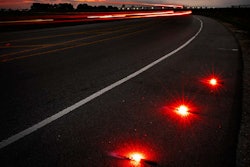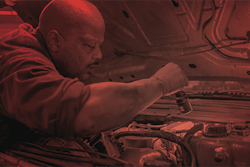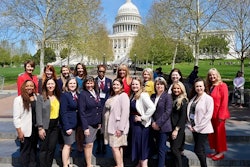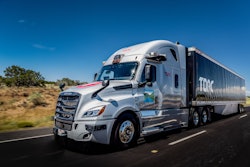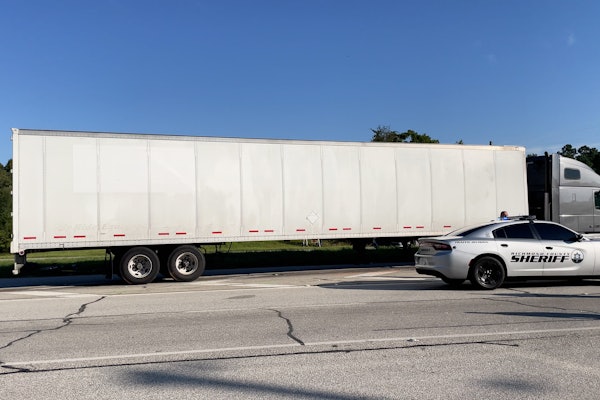Trucking news and briefs for Tuesday, April 23, 2024:
Mississippi cracks down on predatory towing
Mississippi Gov. Tate Reeves on April 19 signed a bill into law that aims to cut down on predatory towing practices targeting commercial vehicles in the state.
The new law establishes a Commercial Vehicle Towing Advisory Committee within the state’s Department of Public Safety’s Public Commercial Transportation Enforcement Division. That committee is charged with:
- Establishing regulations and standards for the inclusion of a towing and recovery service on the tow list, including application procedures and minimum qualification requirements
- Establish statewide maximum towing and storage rates for nonconsensual tows, including those for private property
- Require towing and recovery services to ban the use of per-pound billing for nonconsensual towing
- Publish a Towing Service Standard Manual, with rules governing the use of towing and recovery services for nonconsensual towing of commercial vehicles
[Related: DOT's Buttigieg, FMCSA call out predatory towing, propose penalties]
“Predatory towing is an egregious practice that not only disrupts our state’s supply chain, but also costs Mississippi truck owners thousands of dollars for each unwanted tow,” said Mississippi Trucking Association President Hal Miller. “We are grateful to Mississippi legislators for listening to our concerns about this unfair tactic, and we thank Gov. Reeves for swiftly signing this bill into law.”
The law defines “nonconsensual towing” as “the moving, transporting or recovery of a commercial vehicle by a towing and recovery service without the prior consent or authorization of the owner or operator of the motor vehicle from private property and/or by police-initiated towing.”
The law also requires that when a vehicle is nonconsensually towed to a storage facility, the towing service will allow a vehicle owner or designee of the owner to access the vehicle to collect personal property, “regardless of whether any payment has been made for the towing and recovery service charges.”
Towing and recovery services will also be required to document the vehicle’s condition and reason for towing before hooking up to the vehicle for a nonconsensual tow, and taking multiple photographs from different angles, which can be provided to the truck owner by request.
Additionally, towing and recovery services are banned from using vehicle immobilization devices unless directed to by law enforcement.
The law goes into effect on July 1.
[Related: Predatory towing: How can fleets avoid becoming victims?]
FBI warns of toll road text messaging scam
The Federal Bureau of Investigation has issued a public service announcement regarding complaints reporting scam text messages from what appear to be toll road collection services.
FBI said that since early March, the FBI Internet Crime Complaint Center (IC3) has received more than 2,000 complaints reporting smishing texts representing a road toll collection service from at least three states. Smishing is social engineering attack using fake text messages to trick people into downloading malware, sharing sensitive information, or sending money to cybercriminals.
IC3 complaint information indicates the scam may be moving from state-to-state.
The texts claim the recipient owes money for unpaid tolls and contain almost identical language. The "outstanding toll amount" is similar among the complaints reported to the IC3. However, the link provided within the text is created to impersonate the state's toll service name, and phone numbers appear to change between states. These smishing texts look something like this:
(State Toll Service Name): We've noticed an outstanding toll amount of $12.51 on your record. To avoid a late fee of $50.00, visit https://myturnpiketollservices.com to settle your balance.
If you receive one of these texts, the FBI suggests taking the following steps:
- File a complaint with the IC3, www.ic3.gov. Be sure to include the phone number from where the text originated and the website listed within the text.
- Check your account using the toll service's legitimate website.
- Contact the toll service's customer service phone number.
- Delete any smishing texts received.
- If you clicked any link or provided your information, take efforts to secure your personal information and financial accounts. Dispute any unfamiliar charges.
[Related: In-cab technology, particularly ELDs, vulnerable to cybersecurity threats]
Autocar trucks recalled for three separate issues
Three separate recalls initiated by Autocar LLC hundreds of Autocar DC (Legend) trucks, according to National Highway Traffic Safety Administration documents.
The largest of the three recalls affects approximately 597 model year 2020-’24 DC trucks in which the wiring harness may route fusible links too closely to other components. During a short circuit, the fusible link may ignite nearby material, increasing the risk of a fire. The company said “a manufacturing error” resulted in the issue.
Dealers will repair or replace the harness to include proper circuit protection, free of charge. Owner notification letters are expected to be mailed June 6. Owners can contact Autocar customer service at 1-888-218-3611 with recall number DC-2404. NHTSA’s recall number is 24V-264.
A second recall, affecting approximately 398 model year 2020-’24 Autocar DC units, is due to an issue with the hazard warning lights. The recall states the hazard warning lights may not function independent of the ignition switch. As such, these vehicles fail to comply with the requirements of Federal Motor Vehicle Safety Standard number 108, "Lamps, Reflective Devices, and Associated Equipment."
Dealers will update the software, free of charge. Owner notification letters are expected to be mailed June 6. Owners can contact Autocar customer service with recall number DC-2402. NHTSA’s recall number is 24V-262.
Finally, approximately 41 model year 2022-’23 Autocar DC dump trucks are being recalled because the upper hoist cylinder mounting pin may fail.
“Based on Autocar's current analysis, the upper hoist cylinder mounting pin configuration and material specification does not support the working loads,” the recall states.
A pin failure can allow the hoist to fall, increasing the risk of injury. In addition, the hoist cylinder can disconnect from the vehicle, becoming a road hazard and increasing the risk of a crash.
The remedy is currently under development. Owner notification letters are expected to be mailed June 6. Owners can contact Autocar customer service with recall number DC-2403. NHTSA’s recall number is 24V-261.

